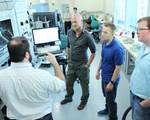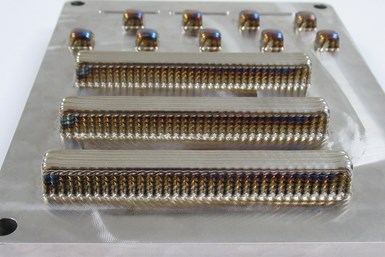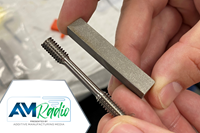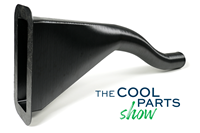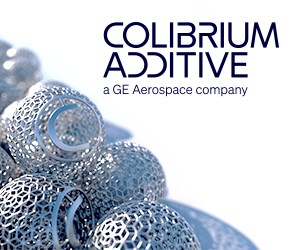MSU, AddiTec Collaborate to Develop Biocompatible Bone Implants
The collaboration focuses on enhancing Ti-6Al-4V implant properties by incorporating alloying elements such as Tricalcium phosphate to the Ti-6Al-4V melt pool matrix — which cannot be done conventionally.
Share
Read Next
Minnesota State University, Mankato (MSU), is working with with Additive Technologies (AddiTec) to develop new ways to produce bone implants with improved properties.
Leading the research is Dr. Kuldeep Agarwal, a professor at MSU’s Department of Automotive and Manufacturing Engineering Technology. He is working with a team from AddiTec, which is a founding partner of Meltio, an additive manufacturing (AM) developer of metal 3D printing systems.
AM has shown successful applications in several fields such as the biomedical sector, the partners say. This technology is said to provide a relatively fast and effective way to solve complex medical cases.
In recent years, AM technologies have sparked intense interest for developing medical implants, devices and scaffolds. It is said the titanium alloy Ti-6Al-4V has been extensively employed in medical implants such as orthopedic-prosthetic replacements due to its superior corrosion resistance and biocompatibility combined with excellent mechanical properties.
However, titanium and titanium alloys still do not provide all the ideal implant properties and performance required in standard clinical practice, the researchers say. Thus, Agarwal is collaborating with AddiTec to enhance Ti-6Al-4V implant properties by incorporating alloying elements such as Tricalcium phosphate to the Ti-6Al-4V melt pool matrix, which cannot be done conventionally. This approach is said to increase biomaterial properties and provide favorable conditions to the bone marrow.
“We are very excited for this collaboration between MSU Mankato and AddiTec,” Dr. Agarwal says. “This partnership will allow us to test and expand the boundaries of additive manufacturing in developing new and unique materials which can improve human life.”
AddiTec is known for its laser metal deposition process (LMD), which is a directed energy deposition (DED) process that functions by precisely stacking weld beads on top of one another (in powder or wire form) when introduced into the laser-generated melt pool.
“Meltio’s LMD technology is versatile and we are seeing an interest in the medical sector from a lot of our customers,” says Dr. Yash Bandari, AddiTec business development manager. “We are thrilled to be working with Dr. Agarwal, and this collaboration will help us understand the requirements and qualification standards for developing medical implants.”
Related Content
-
Stryker Using Additive for Implants
Using its “AMagine” process, Stryker creates components with a titanium alloy that mimics bone.
-
Production AM Demands Process and Procedures — More Machines Will Come Later
Arch Additive has transitioned to full production of implants made through electron beam melting. The transition has involved practices and personnel, not equipment. As customer products win approval and go to market, here are 5 operational moves the AM implant manufacturer has made.
-
Stratasys, CollPlant Unite Technologies for Industrial-Scale Bioprinting of Tissues, Organs
The joint development and commercialization agreement will initially focus on development of a bioprinting solution for CollPlant’s regenerative breast implants, addressing $2.6 billion market opportunity.




